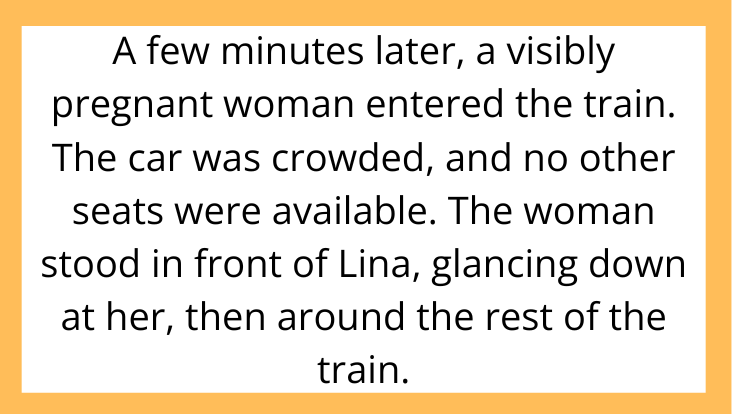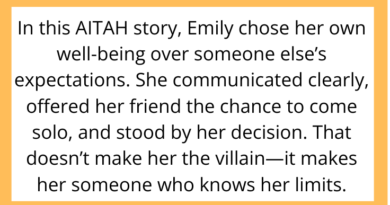AITAH for Not Giving Up My Seat for a Pregnant Woman on the Train Because I Was Exhausted from Work?
After a grueling 12-hour shift on her feet, all the original poster (let’s call her Lina) wanted was a quiet train ride home and a seat to rest her legs. But when a visibly pregnant woman stepped into the train and stood nearby, all eyes turned to Lina.
And when she didn’t stand up, the judgment came fast—from strangers, and later, from the internet.
Did she owe that seat to someone else simply because they appeared to need it more?
Here’s the full story.
The Commute: When Kindness Meets Burnout
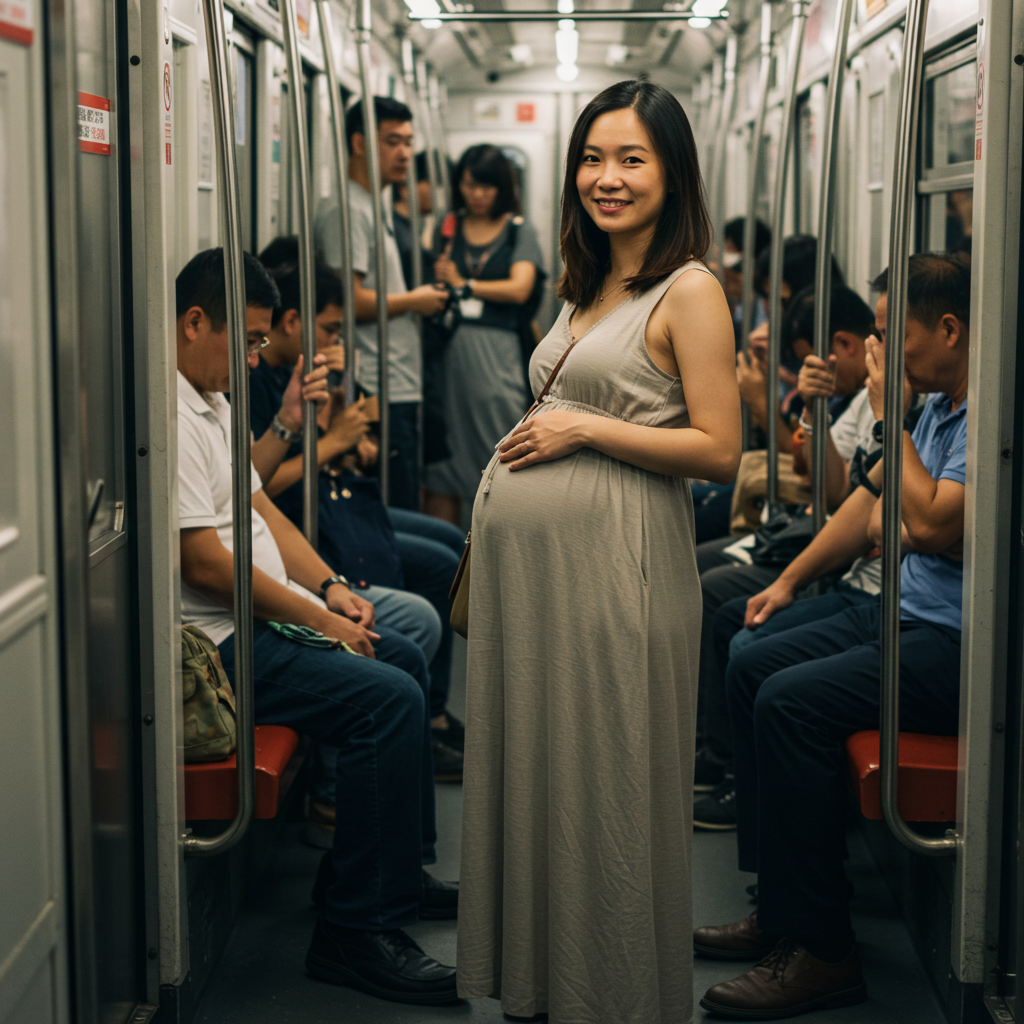
Lina, a 26-year-old nurse, regularly works long shifts at her hospital. On this particular day, she had just finished a high-stress, high-stakes rotation in the emergency department. Her legs ached, her head was pounding, and she hadn’t sat down once during her entire shift.
She boarded her usual train, found a seat, and collapsed into it with relief.
A few minutes later, a visibly pregnant woman entered the train. The car was crowded, and no other seats were available. The woman stood in front of Lina, glancing down at her, then around the rest of the train.
Lina didn’t move.
A man sitting nearby asked loudly, “Are you really not going to give up your seat?”
Lina shook her head. The man scoffed. The pregnant woman said nothing. But the entire ride home, Lina could feel the disapproving stares around her.
The Internet Responds: Is Exhaustion an Excuse?

When Lina posted her story on Reddit’s r/AITAH, she asked one simple question: Am I the villain for not giving up my seat?
The responses were passionate—and deeply divided.
Those Who Said “You’re Not the Villain”
Supporters of Lina’s choice pointed out that needs aren’t always visible.
-
“You were working 12 hours saving lives,” one commenter wrote. “You deserve a seat just as much as anyone else.”
-
Another added, “People assume young and able-bodied means healthy. That’s not always true. Exhaustion is real.”
Many agreed that while it’s kind to give up a seat, it shouldn’t be expected, especially if you’re running on empty yourself.
Those Who Said “You Should Have Stood”
On the other side, some users argued that pregnancy inherently comes with higher needs and risks.
-
“Carrying another life comes with complications,” a commenter said. “Standing can be painful or dangerous, especially in late stages.”
-
Others pointed to basic courtesy: “Pregnant women, elderly people, and disabled individuals should always be offered a seat when possible.”
Some even criticized Lina for not at least offering the seat and allowing the woman to choose.
When Needs Collide: Who Gets Priority?
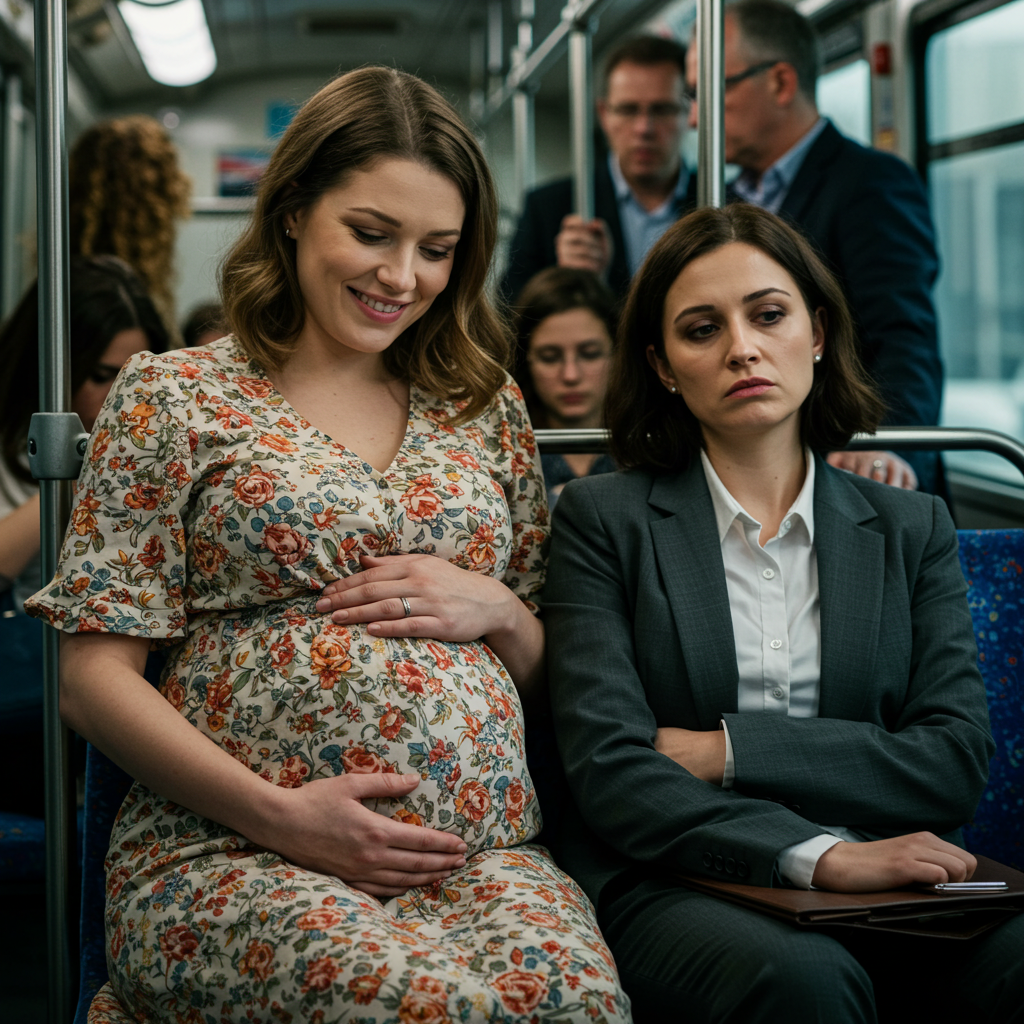
This dilemma illustrates a growing conversation in modern society: how do we treat invisible struggles?
We tend to prioritize visible vulnerabilities—like pregnancy or old age—over hidden ones, like physical exhaustion, mental fatigue, chronic pain, or invisible illnesses. But just because someone looks fine doesn’t mean they’re okay.
In Lina’s case, both individuals had legitimate needs. One was apparent; the other was hidden.
Should kindness be expected from strangers, even when they’re suffering too?
Navigating Social Expectations in Public Spaces
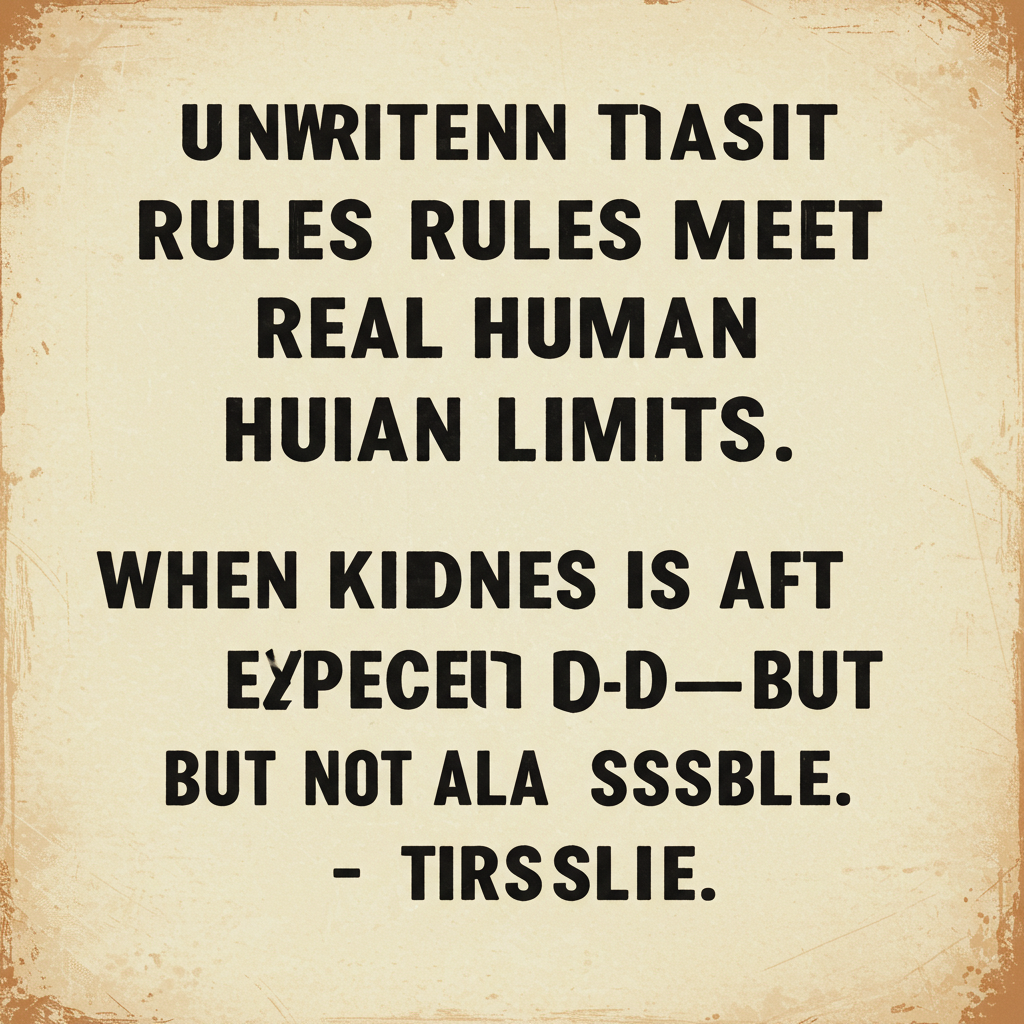
The Unwritten Rules of Public Transit
We’ve all internalized a few basic train and bus etiquette principles:
-
Offer your seat to someone who appears to need it more
-
Keep your bag off the seat
-
Don’t take up more space than you need
But in practice, these rules often rely on assumptions—and peer pressure.
Lina felt judged not because she did something wrong, but because she broke an unspoken social norm. And when others assumed she was healthy or selfish, they cast her as the villain.
The reality? Sometimes kindness is a luxury people simply don’t have the energy to give.
Is There a Middle Ground?

It’s fair to ask: could Lina have handled the situation differently?
-
She could have explained, “I’ve just finished a 12-hour shift and I’m not feeling well.”
-
Or asked if someone else in the train could offer their seat.
-
Even a polite apology with context might have softened the moment.
But let’s be clear: she didn’t owe an explanation. And the assumption that she was selfish speaks to a broader cultural issue of assuming the worst in people.
The Final Verdict: Was She the Villain?
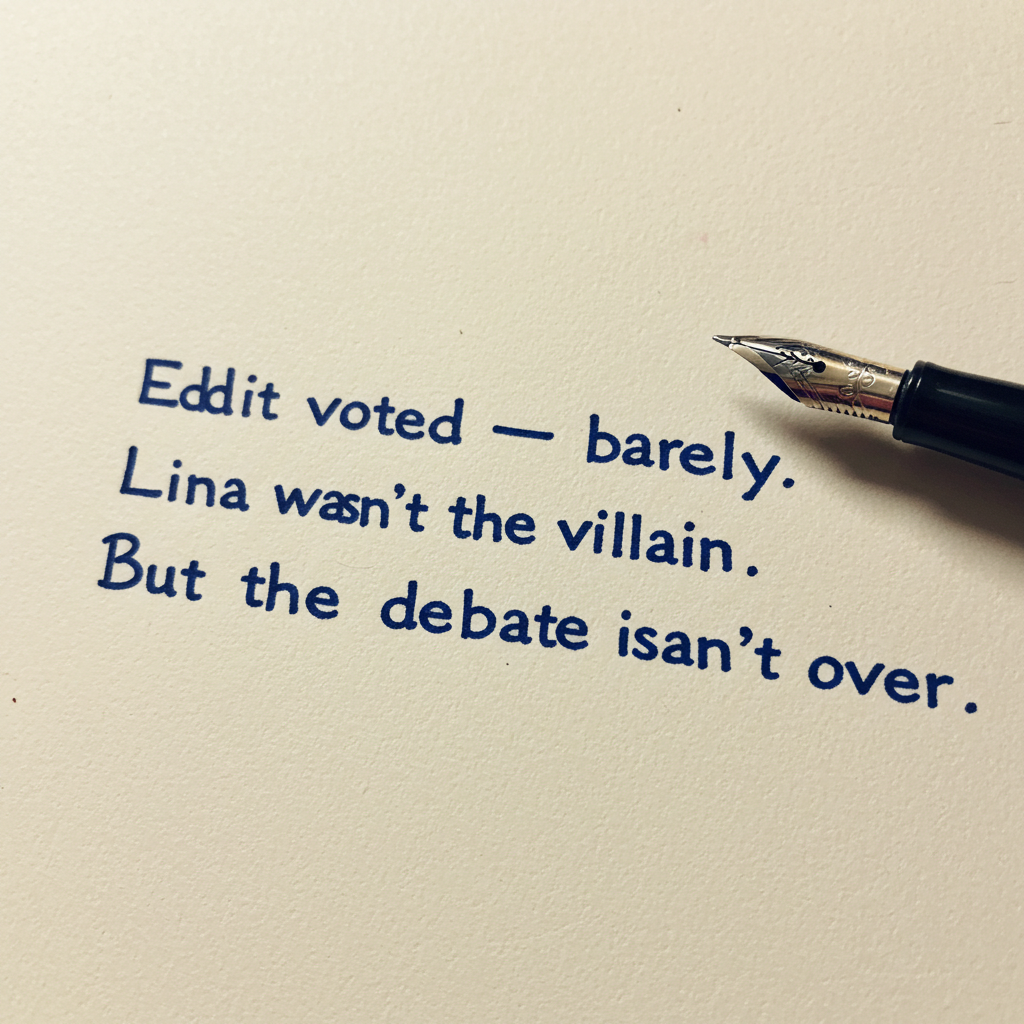
The Reddit consensus leaned slightly in Lina’s favor—though it was close.
Most agreed she was not the villain, but acknowledged that the situation was emotionally complicated. In a perfect world, someone else in the car would have offered a seat, or society would be more compassionate to people with invisible struggles.
